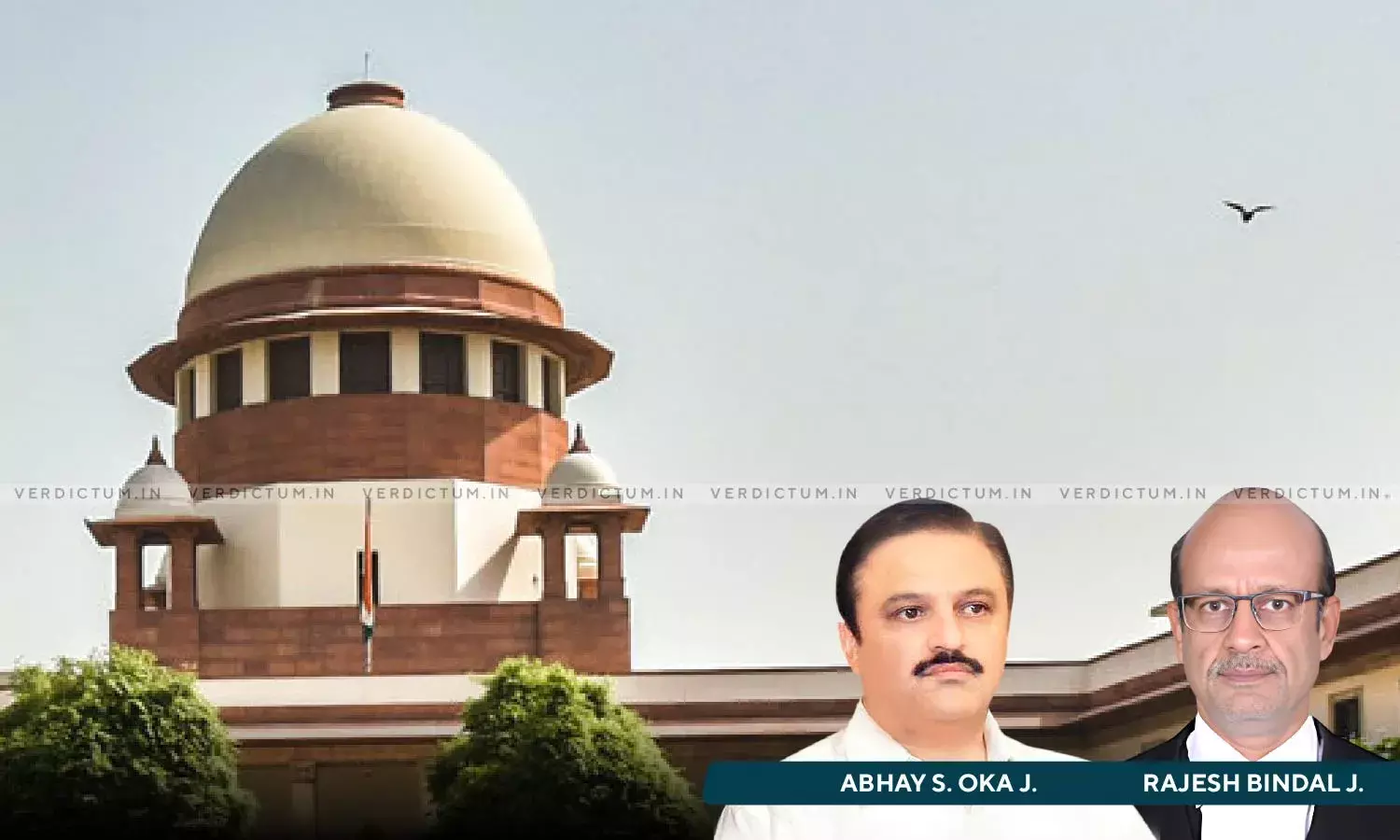Election Petition Does Not Disclose Cause Of Action: SC Rejects Allegation Of Corrupt Practices In TN's Election For Aravakurichi Assembly Constituency

Finding that the ground of improper acceptance of the nomination paper is no longer relevant as the term of the Appellant has already expired, the Supreme Court has allowed the applications filed by the Appellant for rejection of the election petition and/or for deletion of irrelevant paragraphs.
A Two Judge Bench of Justice Abhay S. Oka and Justice Rajesh Bindal observed that “as material facts regarding allegations of corrupt practice have not been pleaded, the election petition does not disclose any cause of action as far as the ground of corrupt practice is concerned.”
Advocate Senthil Jagadeesan appeared for the Appellant, whereas, Advocates A. Lakshminarayanan and Amit Sharma appeared for the Respondent.
In a nutshell of the case, the election petition was filed by the Respondent under Section 82 of the Representation of the People Act, 1951 (RP Act) in the Madras High Court questioning the validity of the election of 134 – Aravakurichi Assembly Constituency held on Nov 19, 2026, the results to which were declared on Nov 22, 2016. The present Appellant was the fifth Respondent in the Election Petition filed by the Respondent who was declared as elected. The Election Petition was challenged on grounds of improper acceptance of nomination papers of the Appellant and the Sixth Respondent. It was also alleged that the election was void as the Appellant had indulged in corrupt practices.
After considering the submission, the Apex Court found that there was failure to plead material facts concerning alleged corrupt practice which was fatal to the election petition.
Stating that not a single material fact in the present case was pleaded to make out an allegation of corrupt practice covered by Section 123 of the RP Act, the Bench observed that the material facts were the primary facts that must be proved on trial by a party to establish the existence of a cause of action.
“All that the first respondent has pleaded is that he made representations to the Returning Officer and other authorities complaining about the corrupt practice on the part of the appellant. What is the nature of the corrupt practice is not mentioned even in brief. Therefore, material facts, which according to the first respondent constitute corrupt practice were not pleaded in the Election Petition”, added the Bench.
The Bench referred to the emails, photographs, and video footage that were relied upon in the list of documents filed along with the Election Petition and stated that “at the highest, these documents will constitute particulars and not material facts.”
While stating that the High Court had no reason to direct the election petitioner to file material documents on record while dismissing applications filed by the Appellant and the sixth Respondent vis-à-vis for the rejection of the petition and/or for deletion of irrelevant paragraphs, the Bench clarified that “It was for the first respondent to seek permission to produce the documents. The first respondent never sought such permission. Even if the documents are produced, the same will be without any foundation in the pleadings.”
The Apex Court also highlighted that many of the paragraphs in the petition were unnecessary which did not deal with something which happened after the election was declared, and stated that “Neither does the petition state the material facts that prove the alleged cause of action nor does it disclose any material facts in relation to the allegations of corrupt practices.”
Accordingly, the Apex Court allowed the present appeal.
Cause Title: Senthilbalaji V. v. A.P. Geetha and Ors.
Click here to read/download Judgment

